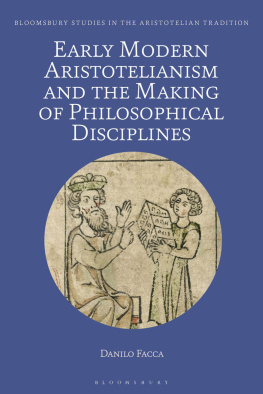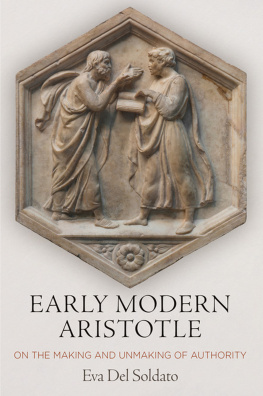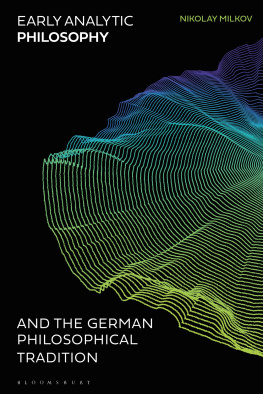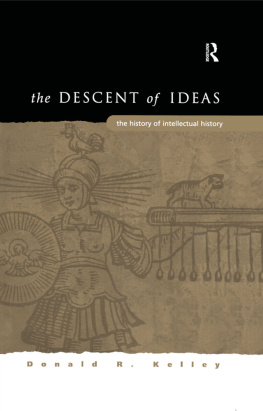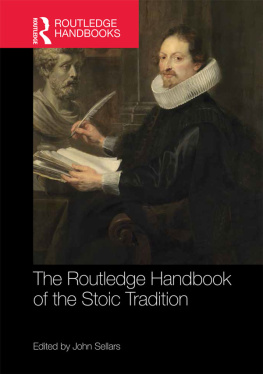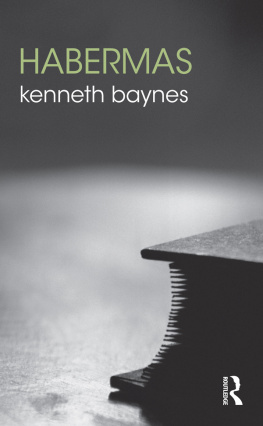Starting from the second half of the sixteenth century, in the rich production of school texts expounding Aristotelian philosophy as a model for secondary and university education, a motif appeared which, although not completely new in the history of the Peripatetic tradition, now returned with particular insistence. It relates to the distinction between the two forms of teaching adopted in the old Lyceum, the school that Aristotle founded and directed, dividing his path from that of the Academy of Plato and Platos disciples. Of these two forms, one was designed for a wider audience and the other for a more select one. The method and ideological implications of this distinction have been discussed since antiquity without actually reaching shared conclusions. After remaining in the shadows during the Middle Ages, the theme was taken up by Renaissance exegetes and, over the fifteenth century and up to the late seventeenth, became one of the points to be clarified in advance in every exposition of a given subject ad mentem Aristotelis. Therefore, it is useful to explore the genesis of this discussion and some of its most interesting episodes, to shed light on what the exoteric Aristotle meant in the academic philosophy of the late Renaissance, before moving on to observing in the subsequent chapters the work carried out by the Aristotelian professors in the elaboration of certain individual disciplines or groups of disciplines deriving from the texts of the Stagirite and from the Peripatetic tradition,
The ancient debate
The expression logoi exterikoi, signifying external discourses, appears in several passages in the works of Aristotle
Coming chronologically between Cicero and Gellius is the testimony of Plutarch (Life of Alexander, 7), who speaks of two forms of teaching delivered by Aristotle, in this case to Alexander alone. On the one hand, ethical and political doctrines (implicitly of lower level) and, on the other, more arcane and recondite teachings (aporrhtai kai bathuterai didaskaliai), also referred to as akroamatikai kai epoptikai, that are transmitted orally and are initiatic, that is, are intended to be kept secret. Seeing that Alexander the Great has already been called into play, the second part of Chapter 5 of Book XX of Gellius Noctes is also relevant. Here he reports the exchange of correspondence between Alexander and Aristotle, in which Alexander rebukes his master for having made his acroatic teachings public (quod invulgasset) by publishing them in books. In reply, Aristotle defends himself by clarifying that these acroatic books were made public and not made public (editos non editos), since they could effectively be understood (cognobiles-xynetoi) only by those who had already heard his lectures and they would be incomprehensible to anyone else.
These are the main sources on the matter. We shall return later to the ulterior evolutions and other aspects of this question in the ancient world, and more specifically to the interpretations of the Neoplatonist commentators. Now we wish to move on to the sixteenth century, when the revival in the circulation of Aristotles works, finally, in their original language, brought this aspect of the Aristotle question back into the limelight. As we shall see, while substantially reapplying solutions that had appeared in ancient times, the Renaissance speculation on this issue not only progressively reveals which image of Aristotle was in circulation, but also at times illustrates points of tangency with important aspects of the intellectual evolution of the time. This seems to make the reconstruction worthwhile.
Juan Gins de Seplveda
The circulation of the Greek originals of Aristotles works
In a word, Seplvedas aim is to deflate the meaning of the term exoteric, which is to be understood simply as other, different from the matter in hand. This pulls the rug from under the alleged existence in Aristotle of two levels of discourse: one easy and clear and the other difficult and deliberately obscure; in actual fact, the latter is Aristotles characteristic stylistic trait in general. As Seplveda writes in the preface apropos the criteria used for his Latin translation, it is inappropriate to render in plain and simple language a philosopher such as Aristotle who:
In other words, the difficulty of grasping Aristotles teachings is not restricted to a particular genre of arguments or books: all Aristotle is difficult, since he addresses serious philosophical issues. Before Politics, Seplveda had tackled the Latin translation of Alexander of Aphrodisias commentary on the Metaphysics (1527) and he championed a style of translation devoid of rhetorical flourishes and Ciceronian rotundities. Here he is probably alluding to his work as an intermediary for the elite educated in humanae litterae which he had frequented during his studies in Italy, especially alongside Pomponazzi. Only this elite, on condition that it was adequately prepared and assisted, could accede to such complex subjects as those dealt with in Aristotles main treatises and taken up by his ancient and mediaeval commentators.
Francesco Patrizi, Giacomo Zabarella and Carlo Sigonio
The considerations contained in Volume I, Book VII of Francesco Patrizis Discussiones peripateticae are of greater philosophical interest. This is a work of immense erudition and remarkable critical acumen, although the latter is frequently marred by the authors anti-Aristotelian prejudice. The Discussiones can indeed be seen as the pars destruens of the overall philosophical project of the Italo-Croatian. Patrizis positive thought consists of a retrieval of the prisca philosophia in Aristotle and also of the opinions of his ancient readers and commentators on the matter.
It is also well to bear in mind the historiosophical schema within which Patrizi inserts the issue of the Aristotelian books, peculiar to him
Patrizis solution to the question of Aristotles books and his sermones appears rather trenchant, conditioned by his image of a philosopher willing to violate the custom of secrecy that had been proper to the sages since the dawn of time to indulge his narcissism. But what is possibly even more important in philosophical terms as well as being destined to leave its mark on subsequent debate is another distinction introduced at the end of the chapter that does not directly concern the texts or discourses. The starting point is a passage from the Physics (IV, 10, 217b, 2932): now we must move on to address time. As regards this it is best first (prton) to investigate by aporias (diaporesai), and also through exoteric discourses (kai dia tn exterikn logn), whether it belongs among the beings or among the non-beings; then (eita) [we must ask ourselves] what is its nature? In this fragment, by placing the emphasis on the scansion first then Patrizi intends to demonstrate that Aristotle has in mind two methods, two modes of addressing the same argument. The one explicitly associated with the exoteric discourses is none other than the dialectic method of developing the two parts of a contradiction (arguing ad utramque partem, does time belong or not belong among beings?), which Patrizi also immediately defines as logical and probable. The type of investigation introduced after the eita then clause is another thing entirely. This is a question about essence or nature and is therefore a philosophical investigation, a concept that is specified by the use of expressions such as demonstrative, scientific, proper to the intrinsic essence of things.hence identifying a dichotomy referable substantially to the argumentative or expositional procedures: namely, the methods. We shall see how fundamental developments were to stem from this point.

